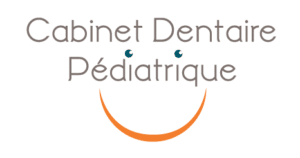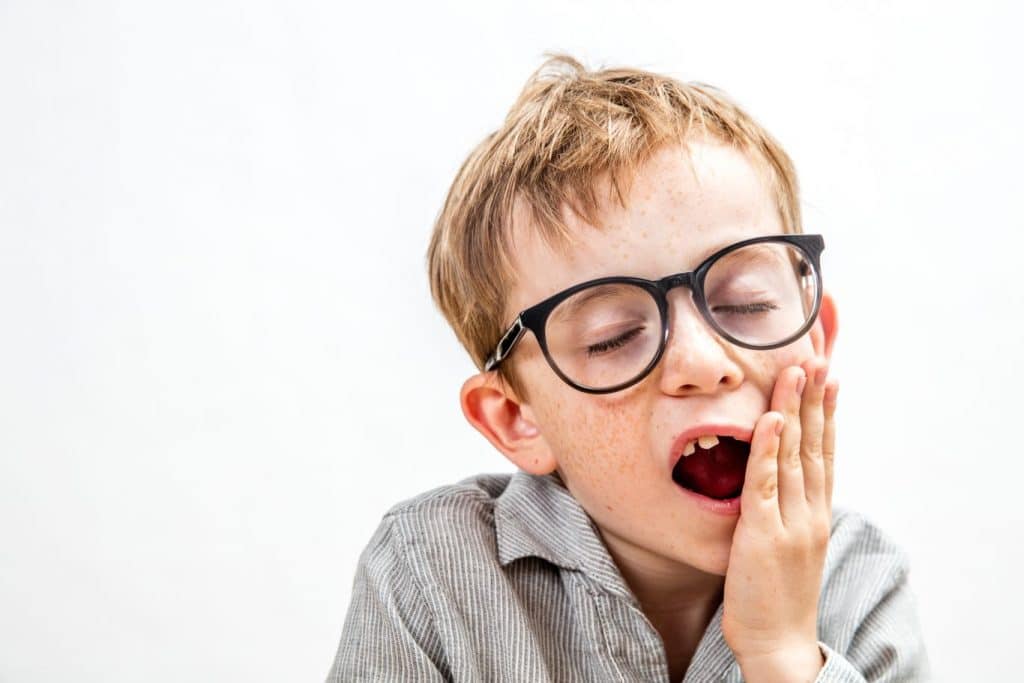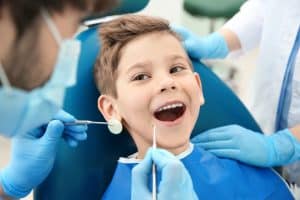Bruxism, a muscle disorder that causes teeth to grind, is very common in children and adults. Teeth grinding can occur during the day, but nighttime grinding is the most common.
Bruxism can create many dental problems if not properly managed.
What is bruxism?
Bruxism is the involuntary grinding or clenching of teeth. It is a disorder that affects both adults and young children. Bruxism is generally more frequent during sleep.
There are two different types of bruxism:
- Sleep bruxism, which refers to people who grind their teeth or clench their jaws during the night,
- Wake-up bruxism is characterized by an absence of teeth grinding, but a clenching of the jaw during the day.
Bruxism: what are the symptoms?
Waking bruxism and daytime jaw clenching are more subtle and difficult to identify than nocturnal bruxism.
Sleep bruxism produces an easily identifiable loud noise during the night.
Bruxism manifests itself with mild signs at first, but can intensify over time if left untreated.
Clenching of the teeth puts excessive pressure on the muscles and structure of the jaw which can lead to a lot of pain.
The most common symptoms of bruxism in children are:
- Pain and headaches,
- Injured teeth and gums,
- A loud grinding of teeth during the night,
- Pain in the jaw muscles, especially in the morning,
- Sensitivity to hot and cold foods,
- A rhythmic clenching of the jaw muscles.
Causes and consequences of bruxism
Bruxism in children can be caused by a variety of factors. Most of the time, teeth grinding is caused by a misalignment or misbite of the jaw.
Bruxism in younger children is often a response to a period of stress. If the child is anxious, then nighttime bruxism may begin or intensify.
Children with developmental disabilities or brain injuries are more likely to be prone to bruxism.
The main consequence of bruxism is premature wear of the teeth. Teeth are under extreme pressure from rubbing, which can lead to a cracked or broken tooth.
Bruxism also causes jaw muscle fatigue. The pain associated with teeth grinding then limits mandibular movements. If left untreated, bruxism can cause teeth to shift and damage the jaw joints.
How to stop grinding your teeth at night?
Treatments to stop grinding your teeth
In most cases, childhood bruxism stops spontaneously around the age of thirteen. Before this age, the pediatric dentist monitors the child's teeth and suggests treatment to limit tooth wear.
If the child's teeth are misaligned, then the dentist can correct their position to stop the grinding. By modifying the occlusal surface of the teeth with crowns, it is possible to stop bruxism.
If there is significant damage to the teeth, the use of specialized overnight braces is recommended. Mouthguards prevent teeth from being clenched together. There are also splints or dental plates to prevent bruxism.
The dentist may also recommend relaxation sessions or therapy to relieve the child's stress, which may be the reason for the bruxism.
How to prevent bruxism?
There are several tips to help prevent bruxism. If your child's teeth grinding is a daytime problem, the dentist can advise your child on techniques to relax and loosen the jaw on a daily basis.
For nighttime bruxism, it is important to relax before going to bed to limit teeth grinding. It is also possible to practice activities that reduce stress, such as sports, breathing exercises, taking a bath or listening to music.
It is important to recognize the early signs of bruxism to avoid oral health consequences. Regular visits to a pediatric dentist will help keep your child's teeth healthy.




